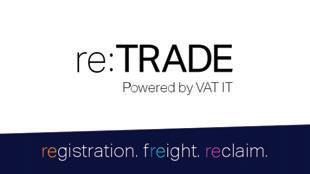
6 minute read
International Trade news
We’re your gateway to international trade, providing a unique combination of expert knowledge, essential documentation and the business connections needed to capitalise on new market opportunities overseas and succeed in a global marketplace.
Rules of Origin FAQs
Advertisement
CAN I EXPORT TARIFF FREE UNDER THE NEW UK-EU TRADE DEAL?
As of 1 January 2021, goods exported to the EU are eligible for zero tariffs if the goods meet the Rules of Origin requirements set out in the Trade and Cooperation Agreement (TCA) and have the right documentation. If not, the goods may be subject to EU tariffs. The same applies for imports to the UK from the EU.
WHAT ARE RULES OF ORIGIN?
Rules of Origin determine the ‘economic nationality’ of a good. They are a standard part of free trade agreements (FTAs). Rules of Origin require a qualifying level of manufacturing in the country of export to access zero tariffs. This ensures only goods produced in the countries party to the FTA (the UK or the EU) benefit from zero tariffs.
WHAT IF I AM IMPORTING GOODS INTO GB AND THEN (RE-)EXPORTING THEM TO THE EU?
The UK is no longer part of the EU Customs Union. This means that goods imported into GB cannot move freely between GB and EU Member States or vice versa. To be eligible for zero tariff export to the EU, these goods still need to comply with Rules of Origin. This means there must be some production in the UK. This applies to EU origin goods as well as to goods from the rest of world. If traders move goods through GB from one EU Member State to another without the goods entering UK customs territory (i.e. without entering free circulation in GB), the goods may not need to meet Rules of Origin. Traders should consider whether they are able to use special customs procedures, such as the Transit Procedure (where the goods are moving through UK customs territory) or Returned Goods Relief procedure (for goods re-exported to the EU).
IF A PRODUCT IS MANUFACTURED IN THE UK USING EU-SOURCED MATERIALS, DOES THAT QUALIFY TOWARDS MEETING RULES OF ORIGIN?
The UK and EU negotiated full bilateral cumulation in the TCA. This means that any EU-originating materials and processing will be treated the same as UK sourced material for the purposes of Rules of Origin (and vice-versa). To be eligible for cumulation, materials must be EU or UK originating (so not just sourced in the UK/EU but originating there). And while EU-originating materials can count towards meeting Rules of Origin, importantly, the processing or manufacturing done in the UK must go beyond insufficient processing in order for the goods to attain originating status.
DO THESE RULES OF ORIGIN ALSO APPLY TO OTHER COUNTRIES WITH WHICH THE UK HAS A FREE TRADE AGREEMENT?
All FTAs will have Rules of Origin, but these are specific to each trade agreement.
Need to understand more about Rules of Origin? Give the International Trade Team a call on 01223 237414 or sign up for our Rules of Origin training course taking place on 23 March, 22 June or 22 September .
Business photo created by dashu83 - www.freepik.com

Support with VAT queries and challenges
The Chamber is proud to partner with re:TRADE powered by VAT IT to provide clarity and guidance to businesses on the effects of Brexit on trade. re:TRADE is a single solution offering compliance, logistics and VAT services assisting UK businesses struggling with postBrexit compliance and supply chain issues. They provide a free consultation to understand the overall existing supply chain and provide expert guidance on how best to ship goods from the UK to the EU, minimising compliance costs and maximising supply chain efficiency. Services include checking all customs paperwork to ensure full compliance, facilitating VAT registrations in all EU export countries, and linking up EORI and VAT numbers in order to submit Import VAT reclaims to give cash back to businesses.
Visit the International Trade page on our website for a link to receive a complimentary consultation.
Coronavirus Survey: cash remains top concern for lockdown-stricken firms across UK
Results from the latest BCC survey on the impact of Coronavirus on businesses show they have been pushed to the brink by the effect of multiple lockdowns. Among the sobering findings from the survey of more than 1,100 businesses are: • Three in every five firms (61%) have seen their revenue from UK
customers fall in the last three months • Almost a third (31%) of businessto-consumer (B2C) firms say they will run out of cash in the next three months • A quarter of survey respondents (25%) say they will make staff redundant if financial support stops in March and April. The leading business group has called on the UK government to set out a clear roadmap for reopening, advancing vaccination and workplace testing plans, and extending key financial support measures for businesses throughout 2021.
Business photo created by master1305 - www.freepik.com

We’re your gateway to international trade, providing a unique combination of expert knowledge, essential documentation and the business connections needed to capitalise on new market opportunities overseas and succeed in a global marketplace.

Business conditions worsen
Compared to October 2020, 61 per cent of firms reported decreased revenue from UK customers. Only 19 per cent of firms reported increased revenue and 20 per cent reported no change. B2C service firms are significantly more likely to report decreased revenue (74%) from UK customers, as are firms with less than 10 employees (65%). When asked approximately how long firms could continue until they ran out of cash, almost one-quarter (23%) said less than three months. This figure rises to almost one-third (31%) of B2C service firms. Just over one quarter (28%) of firms overall and only one-fifth (20%) of B2C firms have cash for more than 12 months. The results paint a bleak picture of a business landscape which has been severely squeezed by repeated lockdowns and massive changes in trading conditions. The survey results also suggest that without the huge amount of government support given to companies to date, that business failures and job losses could have been much worse. Crucially, more support is needed until firms can fully reopen, with just over a quarter (28%) of businesses indicating they have enough cash to last more than a year. On average, B2C firms are currently operating at only 42 per cent of full capacity, while all firms were averaging 57 per cent capacity against a pre-pandemic level of 75 to 80 per cent. Almost half (48%) of companies reported they still have staff on furlough.
Rating the support from government
When asked to rate the effectiveness of the various government schemes to support their business throughout the crisis, the Coronavirus Job Retention Scheme (CJRS), allowing firms to furlough staff, had by far the highest effectiveness rating. More than two-thirds (68%) using this scheme say that it has been very effective, with a further 28 per cent rating it as somewhat effective. Only four per cent said it was not effective. Other schemes with high effectiveness ratings included Government loan schemes (such as CBILS and BBLS) where 46 per cent rated them ‘very effective’ and 44 per cent rated them ‘somewhat effective’, and the local authority business grant scheme, where 45 per cent rated it ‘very effective’ and 40 per cent rated it ‘somewhat effective’. Business rates relief (49%), VAT deferrals (34%), VAT cuts for certain sectors of the economy (26%) were also rated as very effective.









